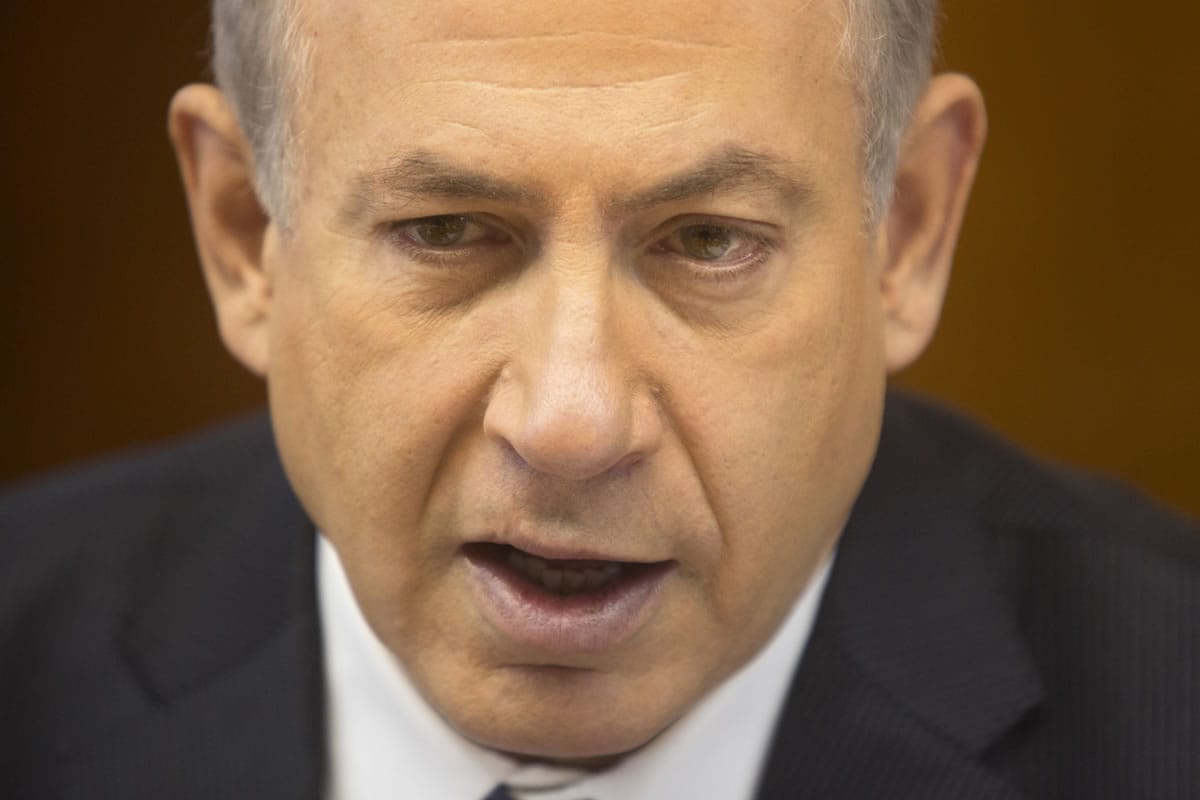JERUSALEM — Is Israel “the Jewish state”?
The answer may seem as obvious as the Star of David on the Israeli flag. Yet the question is starting to complicate the ambitious U.S. effort to ram through a peace deal between the Palestinians and Israel.
A broad-based group of Israelis plans to lobby the Knesset to declare the country, for the first time, a Jewish state by law. And Prime Minister Benjamin Netanyahu has demanded that the Palestinians recognize Israel’s Jewish status explicitly as part of any agreement.
“This is the Jewish land. This is the Jewish state,” he said in a speech this week to assembled U.S. Jewish leaders. “When we make an agreement it is an agreement between the nation state of the Jewish people and a nation state of the Palestinian people.”
Leading Palestinians made their opposition clear this week, insisting that by introducing the Jewish factor, Israel is drawing a red line that could doom negotiations.
“I remember the days when we were told, ‘All you need is to get the PLO to recognize Israel, and recognize Israel’s right to exist in safe and secure boundaries,” said Hanan Ashrawi, a prominent member of the Palestinian Liberation Organization. The Palestinians did just that, she noted, as part of the 1990s interim peace agreements.
“The Jewishness of the state of Israel … this is a new addition,” she told reporters Wednesday. “We are working to establish a pluralistic, democratic, inclusive state in Palestine. Not an exclusive state based on religion, ethnicity or whatever.”
The Palestinians reject Israel’s demand for pragmatic reasons as well: Embrace of Israel as a Jewish state would amount to giving up the dreams of Palestinian refugees to return to lost properties — the so-called “right of return” which is a central sticking point in peace talks. They also say it would undermine the rights of Israel’s own Arab minority, the 20 percent of Israel’s 8 million people who are themselves ethnic Palestinians.
Even some Israelis suspect the demand is intended to complicate — but the idea has wide support nonetheless. To be criticized even for the desire to have a state of their own — a dream allowed people the world over, from the Irish to the Iranians — chafes many Jewish Israelis
Israeli academic Avraham Diskin, a self-professed lifelong dove, said a Palestinian refusal meant perpetuating the conflict. “This is the minimal test to show that their face is to peace,” he said.
Both sides are waiting to see whether the notion shows up in the framework proposal U.S. Secretary of State John Kerry is expected to table in coming weeks.
But the notion of a Jewish state is complicated. By shining strong light on a matter that lives more comfortably in the shadows, Israel may be rekindling some awkward questions: Are the Jews a nation — or individuals who share a religion? Should a religion have a state? Should a state have a religion?
And beyond that lies a bigger issue: Is the idea of a nation-state — with members of that nation fretting over how to stay dominant numerically — not somehow unbecoming in the age of globalization?
Many Jews around the world see their identity as a primarily a matter of religion. Plenty of Israelis think that a “Jewish state” should be more of a theocracy, outlawing work on the Sabbath, for example. At the same time, many Jews in Israel and elsewhere are not at all religious and view themselves as Jewish simply because they were born to Jewish parents — a situation not unlike that of ethnic Irish or Japanese.
Most confounding, perhaps, are the ethnic divisions that persist between the Jews themselves.
Israel’s founders were overwhelmingly European Jews, and that group, known as Ashkenazim, was numerically dominant among Jews before the Nazi Holocaust, diverse yet cohesive enough to lend credence to a national movement.
But the reality today in Israel is diverse. Almost half of the Jewish population of 6 million is descended from the Arab world — their background, history, and even appearance often starkly different from their European cohorts. Tensions over everything from music to food to prayer styles lurk just beneath the surface.
As such, it is not uncommon for Israelis to refer to each other, not always with admiration, by distant country of origin — as “Moroccans” and “Yemenites,” or “Bulgarians” and even “Americans.”
As they observe all this, skepticism among Palestinians — whose communities were displaced by the Zionist movement — seems easy to understand.
“Judaism is a religion like Islam and Christianity,” said Mustafa Barghouti, a prominent Palestinian legislator. “Israel is a state, a nationality that represents all the groups and ethnicities in Israel — including the Palestinians.”



